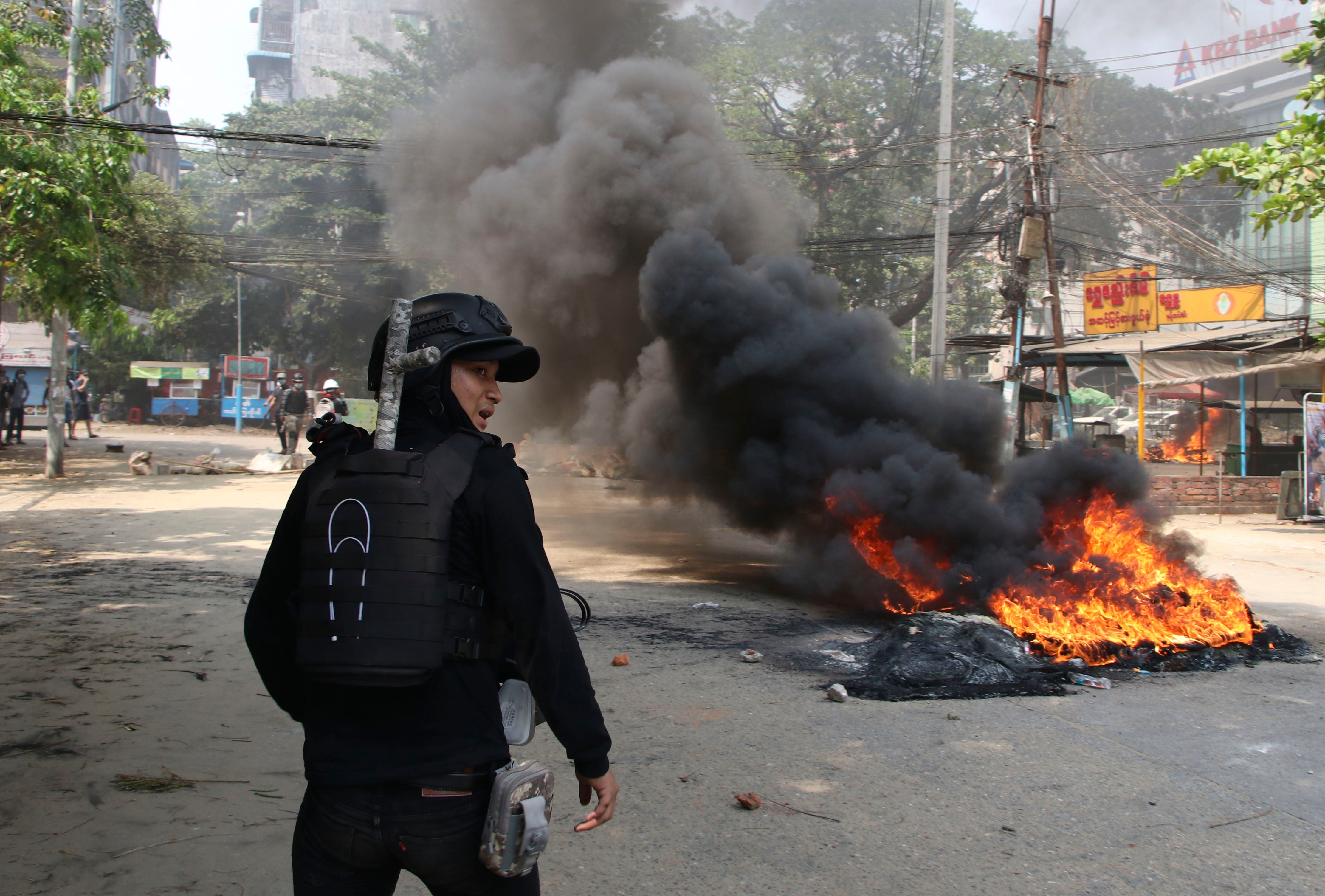Myanmar protests continue a day after more than 100 killed
Protesters have returned to the streets despite the crackdown by security forces

Your support helps us to tell the story
From reproductive rights to climate change to Big Tech, The Independent is on the ground when the story is developing. Whether it's investigating the financials of Elon Musk's pro-Trump PAC or producing our latest documentary, 'The A Word', which shines a light on the American women fighting for reproductive rights, we know how important it is to parse out the facts from the messaging.
At such a critical moment in US history, we need reporters on the ground. Your donation allows us to keep sending journalists to speak to both sides of the story.
The Independent is trusted by Americans across the entire political spectrum. And unlike many other quality news outlets, we choose not to lock Americans out of our reporting and analysis with paywalls. We believe quality journalism should be available to everyone, paid for by those who can afford it.
Your support makes all the difference.Protesters in Myanmar returned to the streets on Sunday to express their demands for a return to democracy, just a day after security forces killed more than 100 people in the bloodiest day since last month’s military coup.
Protests were held in Yangon and Mandalay, the country’s two biggest cities, as well as elsewhere. Some of the demonstrations were again met with police force.
At least 114 people were killed on Saturday as security forces cracked down on protests against the 1 Feb coup that ousted Aung San Suu Kyi’s elected government, according to the online news service Myanmar Now. The reported fatalities included several children under 16 years old.
Similar tallies of the death toll were issued by other Myanmar media and researchers, far exceeding the previous highest death toll on 14 March. The number of killings since the coup is now more than 420, according to multiple counts.
The coup reversed years of progress towards democracy after five decades of military rule, and has again made Myanmar the focus of international scrutiny.
The Saturday killings by police and soldiers took place throughout the country as Myanmar’s military celebrated the annual Armed Forces Day holiday with a parade in the country’s capital, Naypyidaw.
The bloodshed quickly drew international condemnation, both from diplomatic missions within Myanmar and from abroad.
UN secretary-general Antonio Guterres said he was shocked by the killing of civilians, including children.
“The continuing military crackdown is unacceptable and demands a firm, unified & resolute international response,” he wrote on Twitter.
In the United States, secretary of state Antony Blinken said in a tweet that his country was “horrified by the bloodshed perpetrated by Burmese security forces, showing that the junta will sacrifice the lives of the people to serve the few”.
The military chiefs of 12 nations issued a joint statement condemning the use of force against unarmed people.
“A professional military follows international standards for conduct and is responsible for protecting – not harming – the people it serves,” it said. “We urge the Myanmar armed forces to cease violence and work to restore the respect and credibility with the people of Myanmar that it has lost through its actions."
The statement was issued by the defence chiefs of Australia, Canada, Germany, Greece, Italy, Japan, Denmark, the Netherlands, New Zealand, South Korea, the United Kingdom and the United States.
The human rights group Amnesty International revived criticism that the international community was not doing enough to end state violence in Myanmar.
“UN Security Council member states’ continued refusal to meaningfully act against this neverending horror is contemptible,” said Ming Yu Hah, the organisation’s deputy regional director for campaigns.
The council has condemned the violence but not advocated concerted action against the junta, such as a ban on selling it arms. China and Russia are both major arms suppliers to Myanmar’s military as well as politically sympathetic, and as members of the council would almost certainly veto any such move.
In recent days the junta has portrayed the demonstrators as the ones perpetrating violence for their sporadic use of Molotov cocktails. On Saturday, some protesters in Yangon were seen carrying bows and arrows. The junta has said its use of force has been justified to stop what it has called rioting.